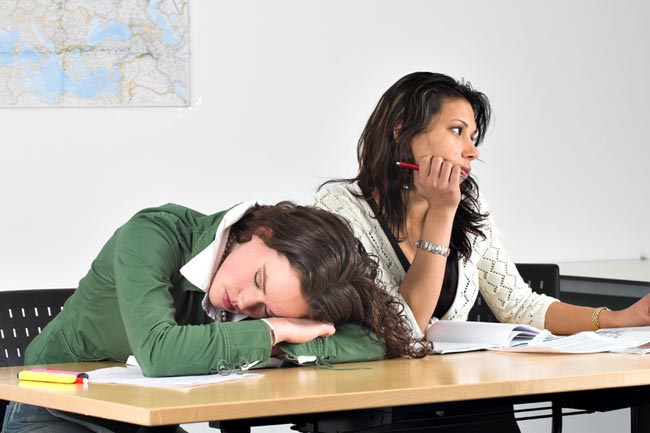Why We Can't Sit Still

People may work to pay the rent, gain accolades or contribute to society. But a new study suggests another reason why we do anything: to save us from boredom.
In fact, we so dread dawdling that we'll take up a meaningless task as long as we find some way to justify it to ourselves, the researchers say.
However, the results show humans are wary of work without reason: Participants chose idleness over activity if they felt the task was a waste of time. Such reluctance to accept busywork might come at a cost to our happiness. Across the board, participants were happier if they were busy than if they were idle.
The results suggest people should stay occupied, even if their activity serves no purpose. For instance, make a mess just to clean it up, or take something apart just to put it back together again. Such work is a better alternative than engaging in busy, yet destructive activity, such as crimes, the researchers say.
Business brings happiness
The findings are based on two experiments.
In the first, 98 college-age participants were told they would fill out surveys about their school, and must leave all personal items at the door. After the students finished one survey, they were told the next would not be ready for 15 minutes. In their free time, they could either drop their first survey off at a location right outside the door, or at place farther away. It would take about 12 to 15 minutes to walk to the second location and back. The students would receive a candy once they turned in their survey.
Sign up for the Live Science daily newsletter now
Get the world’s most fascinating discoveries delivered straight to your inbox.
Some students were told that no matter which location they went to, the candy would be the same — a piece of milk or dark chocolate. Others were told that one location offered only milk chocolate, while the other offered only dark chocolate. A prior test had indicated that the students, on average, did not have a preference for milk or dark chocolate.
Students in the first group had no reason to go to the more distant location since the candy they received would be the same either way. The latter group didn't really have a reason either, since students generally liked milk and dark chocolate the same. But a student could justify the longer trip by saying he or she preferred the candy offered at the farther location.
When the candies offered at the two locations were the same, most students, 68 percent, chose to drop off the survey at the nearby location. But when the candies were different, the majority, 59 percent, took the long walk.
In general, those who kept themselves occupied by walking were happier in the last 15 minutes of the experiment than those who chose to be idle.
The second experiment, involving 54 participants, was the same as the first, except that students were told which location to deliver the survey to — they didn't have a choice.
Again, students who were busy the entire time by walking to the farther location were happier than students who waited idly in the last 15 minutes.
Build a bridge to nowhere
When the researchers described the first experiment to a group of 52 participants, most said those who kept themselves busy would be happier. This suggests that, although we know business brings happiness, we can't bring ourselves to do something without reason.
Our desire to justify everything we do might have evolutionary underpinnings.
"In their strife for survival, human ancestors had to conserve energy to compete for scarce resources; expending energy without purpose could have jeopardized survival," the researchers write in the July issue of the journal Psychological Science.
So how do we overcome this aversion to idleness?
Since we don't know what's best for ourselves, the researchers suggest those with authority should take the lead.
"Governments may increase the happiness of idle citizens by having them build bridges that are actually useless," they write.
Some of these interventions actually already exist, the researchers say. "Airports have tried to increase the happiness (or reduce the unhappiness) of passengers waiting at the baggage carousel by increasing the distance between the gate and the baggage claim area, forcing them to walk far rather than wait idly," they write.
- 10 Things That Make Humans Special
- 7 Thoughts That Are Bad For You
- 5 Keys to Happiness

Rachael is a Live Science contributor, and was a former channel editor and senior writer for Live Science between 2010 and 2022. She has a master's degree in journalism from New York University's Science, Health and Environmental Reporting Program. She also holds a B.S. in molecular biology and an M.S. in biology from the University of California, San Diego. Her work has appeared in Scienceline, The Washington Post and Scientific American.









